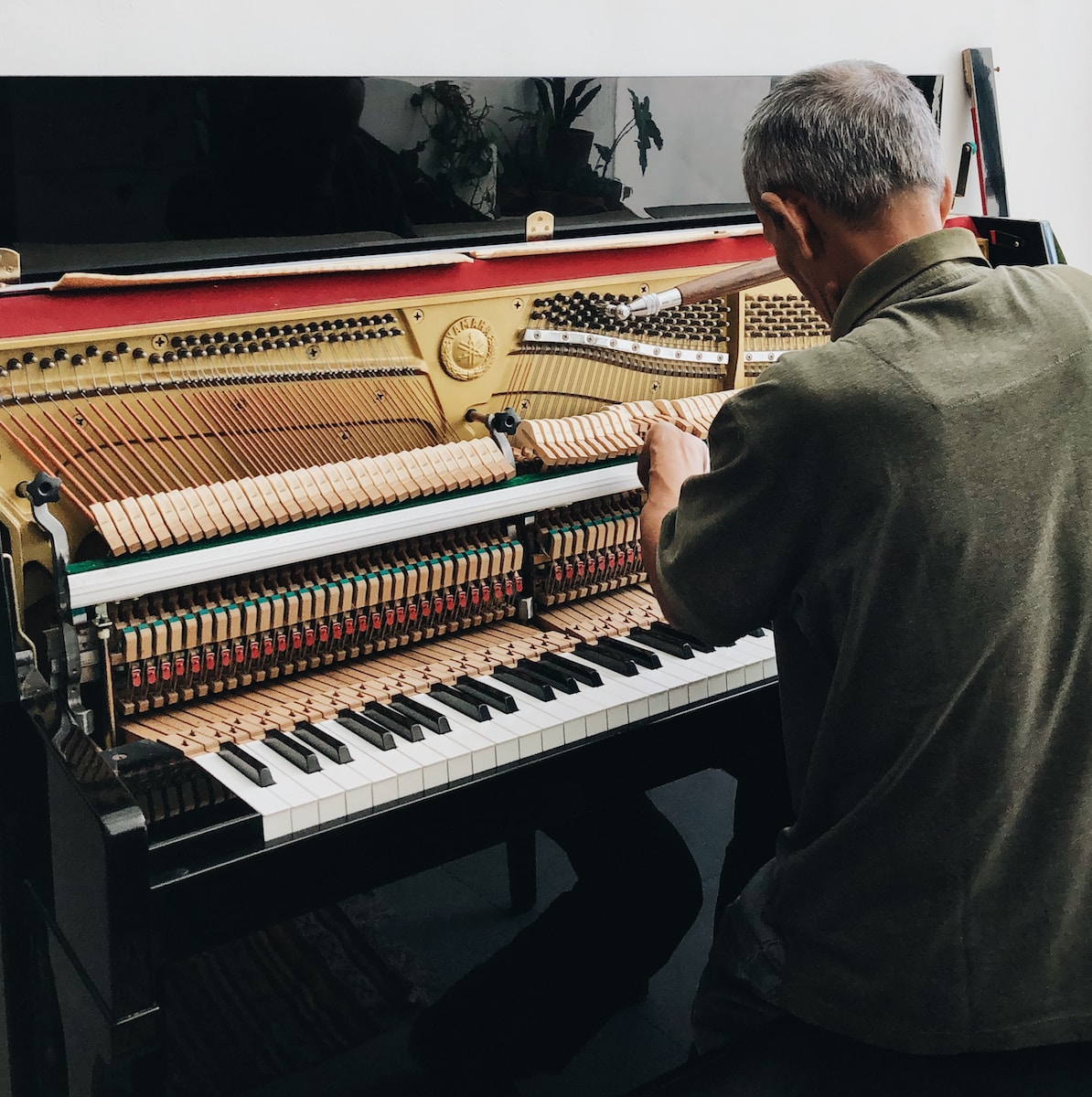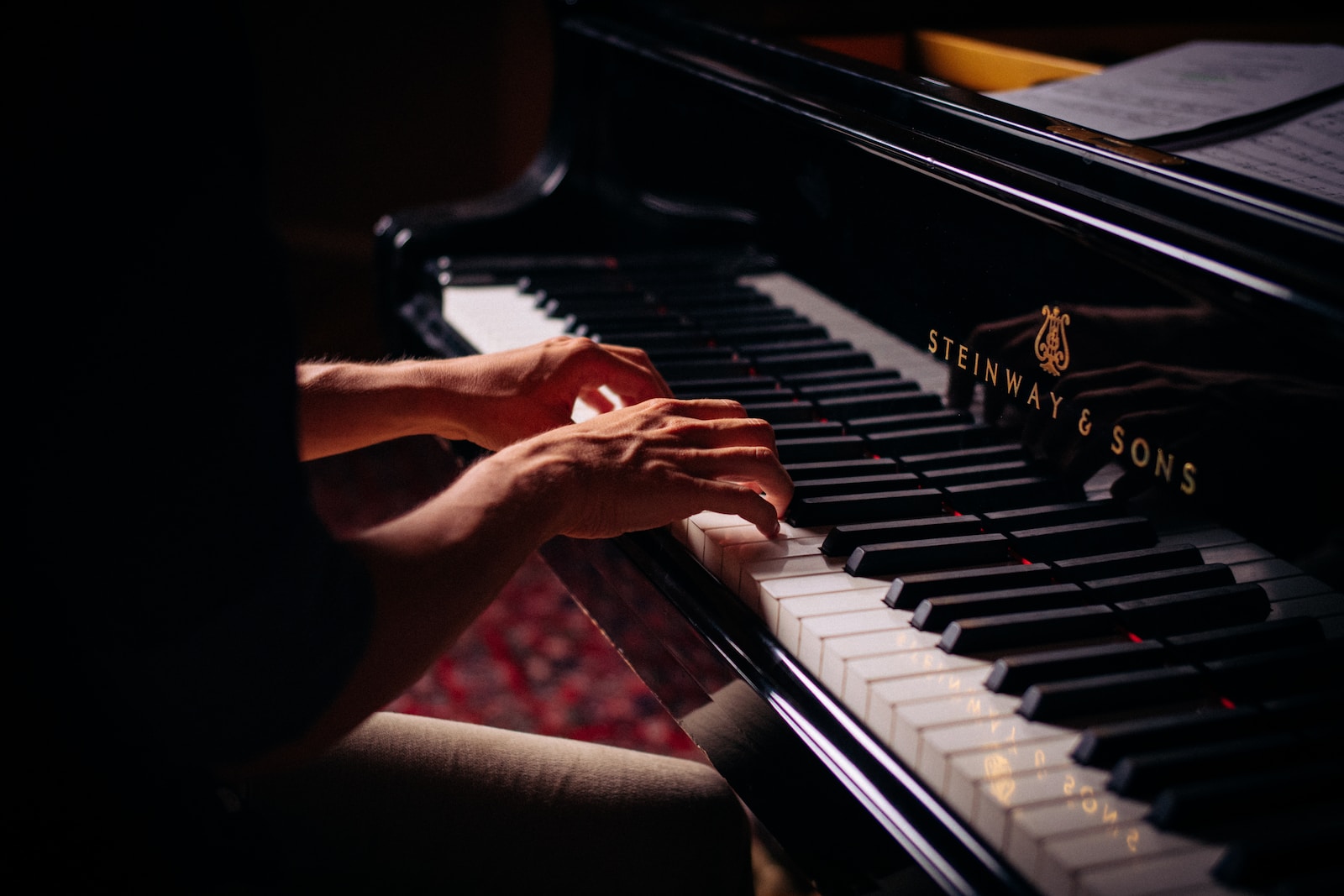
Choosing an acoustic piano can be a big investment, so it’s important to carefully consider your options before making a decision. Here are some things to consider when choosing an acoustic piano:
- Budget: Acoustic pianos can range from a few hundred dollars to tens of thousands of dollars, so it’s important to determine your budget before making a purchase.
- Size: Acoustic pianos come in various sizes, from upright to grand. Consider the available space in your home or studio and the size of the instrument that will fit comfortably.
- Tone: The tone of an acoustic piano can vary based on factors such as the type of wood used and the shape of the soundboard. Try playing different pianos to determine the tone that you prefer.
How wood types affect the tone of the piano:
- Soundboard: The soundboard is the large wooden panel that sits inside the piano and amplifies the sound of the strings. Spruce is the most commonly used wood for soundboards because it is lightweight, strong, and has excellent resonance properties. However, other woods such as cedar, fir, and mahogany can also be used and can produce different tonal characteristics.
- Back and sides: Hardwoods such as maple and birch are commonly used for these components because they are strong and dense, which helps to reflect sound waves back into the piano. These woods can produce a bright and focused tone. Softer woods such as mahogany or rosewood are also used for backs and sides, and can produce a warmer and more mellow tone.
- Keys and action: Ebony is a common choice for the keys because it is dense and produces a bright, clear tone. However, some pianists prefer the feel of lighter-colored woods such as maple or boxwood, which can produce a warmer and more rounded tone.
- Touch and feel: The touch and feel of the keys can vary between different pianos. Some people prefer a light touch, while others prefer a heavier touch. It’s important to try out different pianos to see what feels most comfortable to you.
- Brand and reputation: Different brands of pianos have different reputations for quality and reliability, and therefore hold significant importance as a factor to consider, as each brand have distinct tonal characteristics, and price range. Some of the most popular brands including:
- Steinway & Sons: Steinway pianos are considered by many to be the standard for high-quality pianos. They are known for their rich and full tone, responsive action, and superior craftsmanship. Steinway pianos are made in the United States and Germany.
- Yamaha: Yamaha is a Japanese company that produces a wide range of musical instruments, including pianos. Yamaha pianos are known for their consistency, durability, and affordability. They are a popular choice for schools, music studios, and beginning pianists.
- Bösendorfer: Bösendorfer is an Austrian piano manufacturer that is known for producing some of the most expensive and luxurious pianos in the world. Their pianos are known for their warm and rich sound, and their unique “Viennese sound” that is characterized by a singing quality in the upper registers.
- Kawai: Kawai is a Japanese company that produces high-quality pianos at a more affordable price point than some of its competitors. Kawai pianos are known for their rich and expressive tone, and their innovative technologies, such as the use of carbon fiber in the action.
- Fazioli: Fazioli is an Italian company that produces some of the most expensive and highly regarded pianos in the world. Fazioli pianos are known for their incredible tonal range, from the softest whisper to the most powerful fortissimo, and their precise and responsive action.
- Bechstein: Bechstein is a German piano manufacturer that has been producing high-quality pianos since 1853. Bechstein pianos are known for their clear and transparent tone, and their ability to produce a wide range of tonal colors.
- Maintenance and upkeep: Acoustic pianos require regular maintenance, such as tuning and regulation, to keep them in good working order. Consider the cost of maintenance and the availability of qualified technicians in your area.
- Resale value: If you plan on selling the piano in the future, consider the resale value of different brands and models. In general, acoustic pianos tend to hold their resale value much better compared to digital pianos for several reasons:
- Material cost: Since acoustic pianos built and designed entirely as acoustic and mechanical instruments, the cost of raw materials used to build them are rising over time relative to depreciating value of money, while at the same time, the supply of raw materials used are also getting scarce. This factor alone offset the diminishing value resulting from other factors.
- Quality and longevity: Acoustic pianos are often built to a higher standard of quality and craftsmanship, with many models designed to last for decades or even centuries. This durability and longevity can make them more desirable on the used market, as they can still provide excellent performance and sound quality even after years of use.
- Limited supply: The production of high-quality acoustic pianos is often limited, which can drive up demand for used instruments. Digital pianos, on the other hand, can be mass-produced and are often replaced by newer models with updated technology, which can make them less valuable on the used market.
- Emotional value: Acoustic pianos can have significant emotional value to their owners, as they may have been passed down through generations of a family or have other sentimental value. This emotional connection can make owners more reluctant to sell the instrument, which can limit the supply of used acoustic pianos and drive up their value.
- Purpose: Finally, consider what you’ll be using the piano for. If you’re a professional pianist, you may want a high-end instrument with specific features. If you’re a beginner or playing for leisure, you may not need as many features or a high-end instrument.

In conclusion, it is worth noting that an acoustic piano is a significant investment, both in terms of money and space, so it’s important to choose a piano that will meet your needs for years to come. Factors such as the piano’s resale value, quality, and longevity should be taken into account when making a decision.
Ultimately, the most important factor in choosing an acoustic piano is your personal preference and playing style. The best piano for you is the one that feels and sounds the best to you, and that you will enjoy playing for years to come.










































































































